Lexington resident leads Wheelchair Rugby team into historic event at Myrtle Beach
The USA Wheelchair Rugby League announced they will be playing the first ever Wheelchair Rugby League matches played in North America when they play the team from Wales on Feb. 2 and 3 at the Myrtle Beach Sports Center.
This item is available in full to subscribers.
Subscribe to continue reading. Already a subscriber? Sign in
Get 50% of all subscriptions for a limited time. Subscribe today.
Please log in to continueNeed an account?
|
Lexington resident leads Wheelchair Rugby team into historic event at Myrtle Beach
The USA Wheelchair Rugby League announced they will be playing the first-ever Wheelchair Rugby League matches played in North America when they play the team from Wales Feb. 2 and 3 at the Myrtle Beach Sports Center.
The matches are scheduled to be the main event of the Beers of America Craft Beer and Adaptive Sports Festival. The matches between USA and Wales will also be the first international match scheduled between Wheelchair Rugby League teams in 2024.
These teams met at last year’s Wheelchair Rugby League World Cup, with Wales winning a tight game. It was the USA’s team debut in the event.
The USA Wheelchair Rugby team is head-coached by Lexington resident Geoff Mason. Mason is an Australian native and played rugby professionally for the Newtown Jets and Penrith Panthers in the New South Wales Rugby League before coming to the University of South Carolina to act as player/coach of the men’s rugby team. After that stint, Mason got into coaching full time with the university team.
After a while, Mason was introduced into a whole new world of rugby when Andy Lucas from the USA Wheelchair Rugby League approached him about coaching the national team.
“Andy wanted to get wheelchair rugby league off the ground and asked me if I’d help coach and my initial reaction was, ‘Rugby league in wheelchairs, how much fun could that be?’” Mason said. “But, you know, I watched some videos and really got into it and Andy put in an application to go to the Rugby World Cup in England and they accepted us. So we had to start from scratch to get a team together and teach them rugby league.”
Upon coaching the newly formed team, Mason was instantly blown away by the ability of these athletes.
“I think the strongest thing for me was seeing that they’re as good an athlete as anybody with no disabilities,” Mason said. “They’re tough, they’re strong, they’re committed, they play as hard as you could imagine and they’re really committed to the game.”
The team, which practices in Columbia and Lexington, has picked up the sport instantly and has performed well despite not having the same experience as teams from Wales, England, Australia and New Zealand.
“We started with nobody having seen rugby league and nobody ever playing it because it’s not much of a game over here,” Mason added. “It’s big in Australia and England but I coach these guys up, and women as well, and they just continue to learn and learn and they’re getting better and better. I think it’s a testament to their mental strength and their physical strength. We got women playing and we got a lot of veterans who are missing limbs and so forth but it’s one hell of a game … you’d be amazed how they play.”
Lucas, who helped start the process of building the team from the ground up, knows that there are some pretty significant misconceptions about what wheelchair rugby is. Specifically, Lucas alludes to the sport that is more commonly known as “Murderball.”
“Murderball” was highlighted in a popular 2005 documentary about players playing a viciously violent form of wheelchair rugby. However, in wheelchair rugby league, the rules are different and the sport is much less violent than the type of wheelchair rugby that is depicted in the film. Lucas has described wheelchair rugby league as closer to American or Canadian football given the wide open nature of the sport that is more focused on pace and space.
“It’s worse trying to explain the difference between wheelchair rugby and murderball, which is not rugby at all,” Lucas said. “When you think about it, murderball is played with a volleyball and they pass backward but they roll it across the line. Wheelchair rugby league is with a proper rugby ball, has H-posts, has six tackles and is like flag football because flags are on your body and on your shoulders and that’s how tackles are made.”
For many in the South Carolina area, the event at Myrtle Beach will be the first time they get to watch a wheelchair rugby league match and experience it for the first time. For those people, Mason recommends checking out some video of the sport and that once they do, they’ll be hooked.
“I would suggest they go to YouTube and look at wheelchair rugby league,” Mason said. “Once they saw that, I think that would really pique their interest.”
More information on the event and the sport of USA Wheelchair Rugby League can be found at usawhrl.com.
Keywords
USA Wheelchair Rugby League, Andy Lucas, Geoff Mason, Myrtle Beach, Wales Wheelchair Rugby LeagueOther items that may interest you

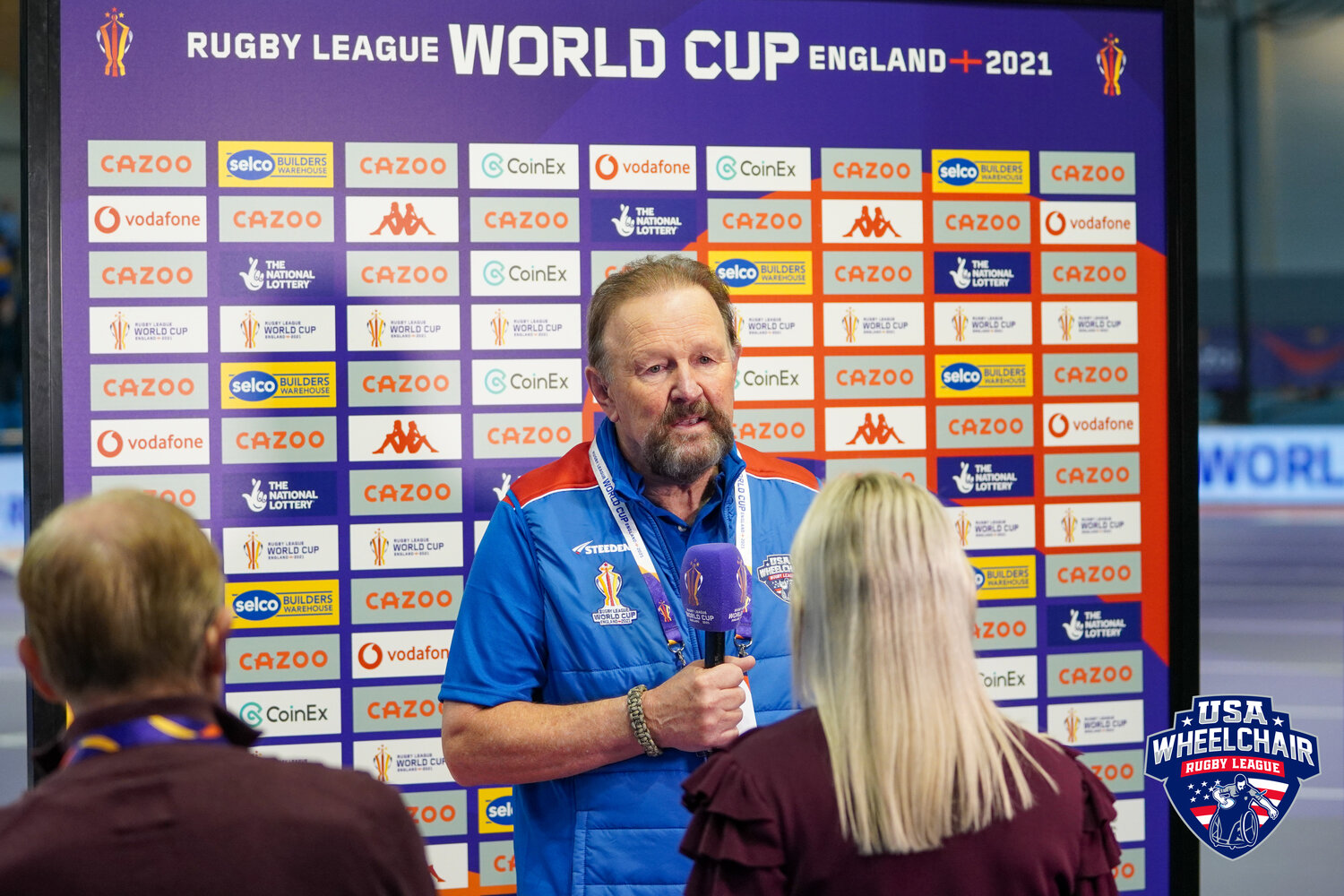
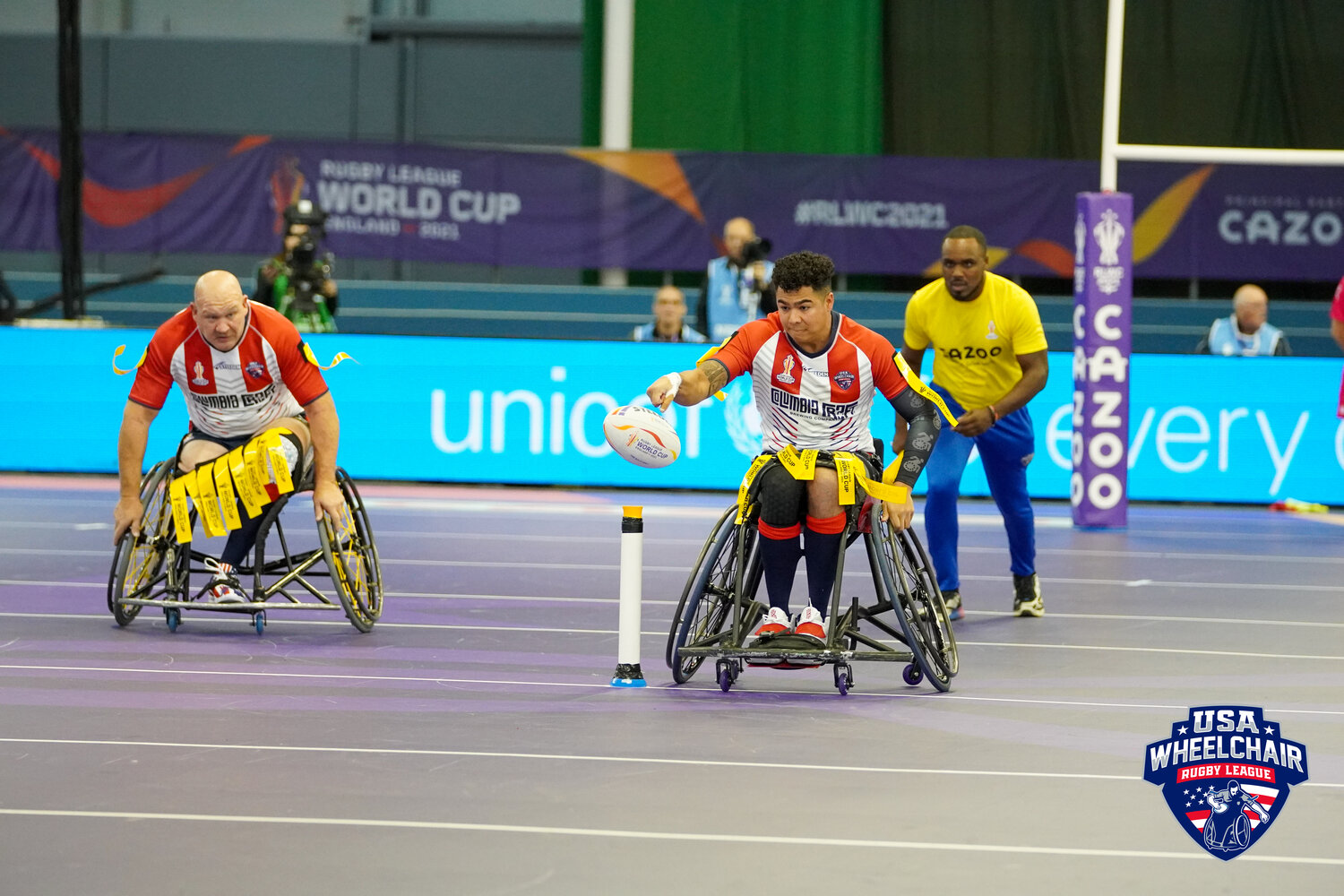
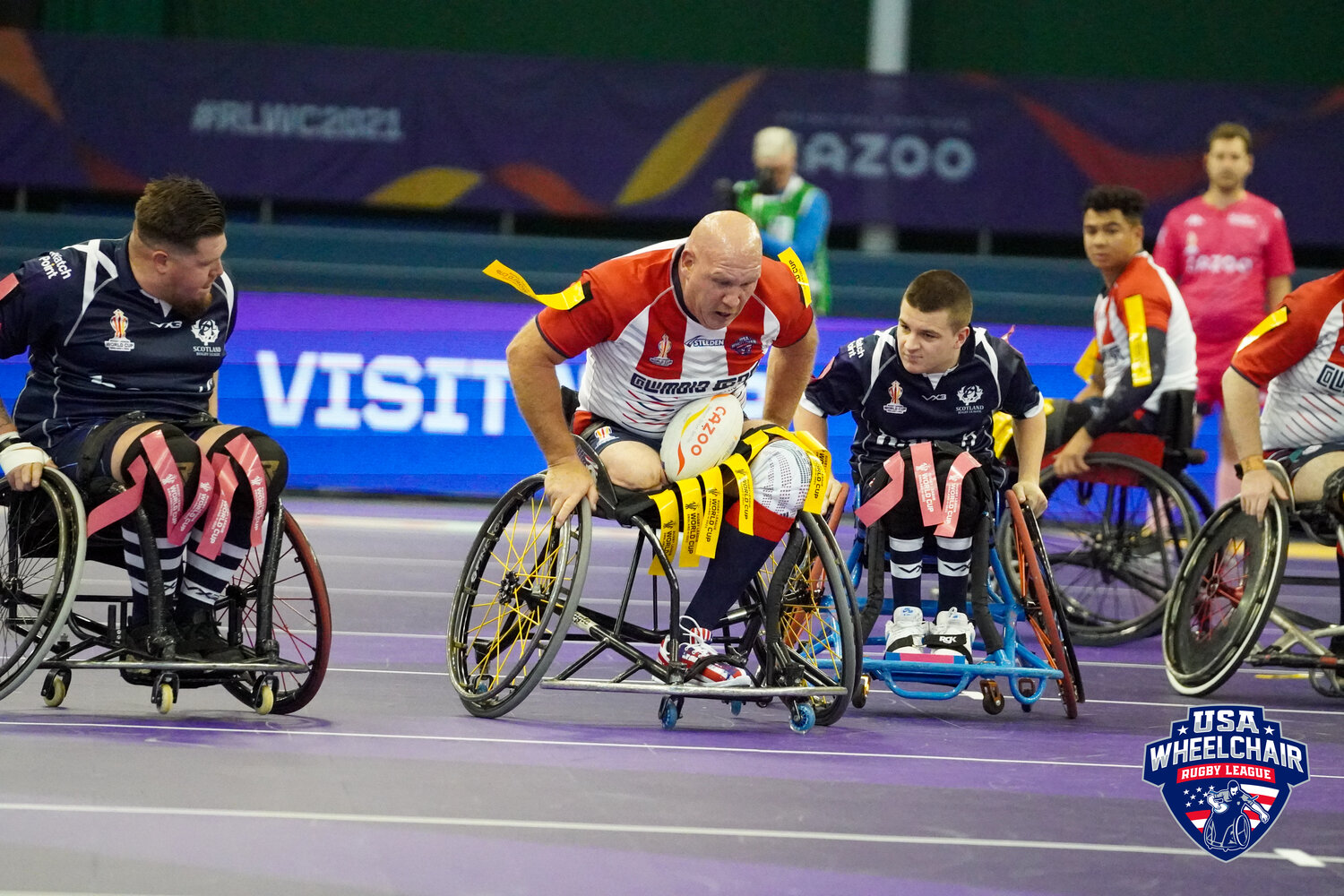
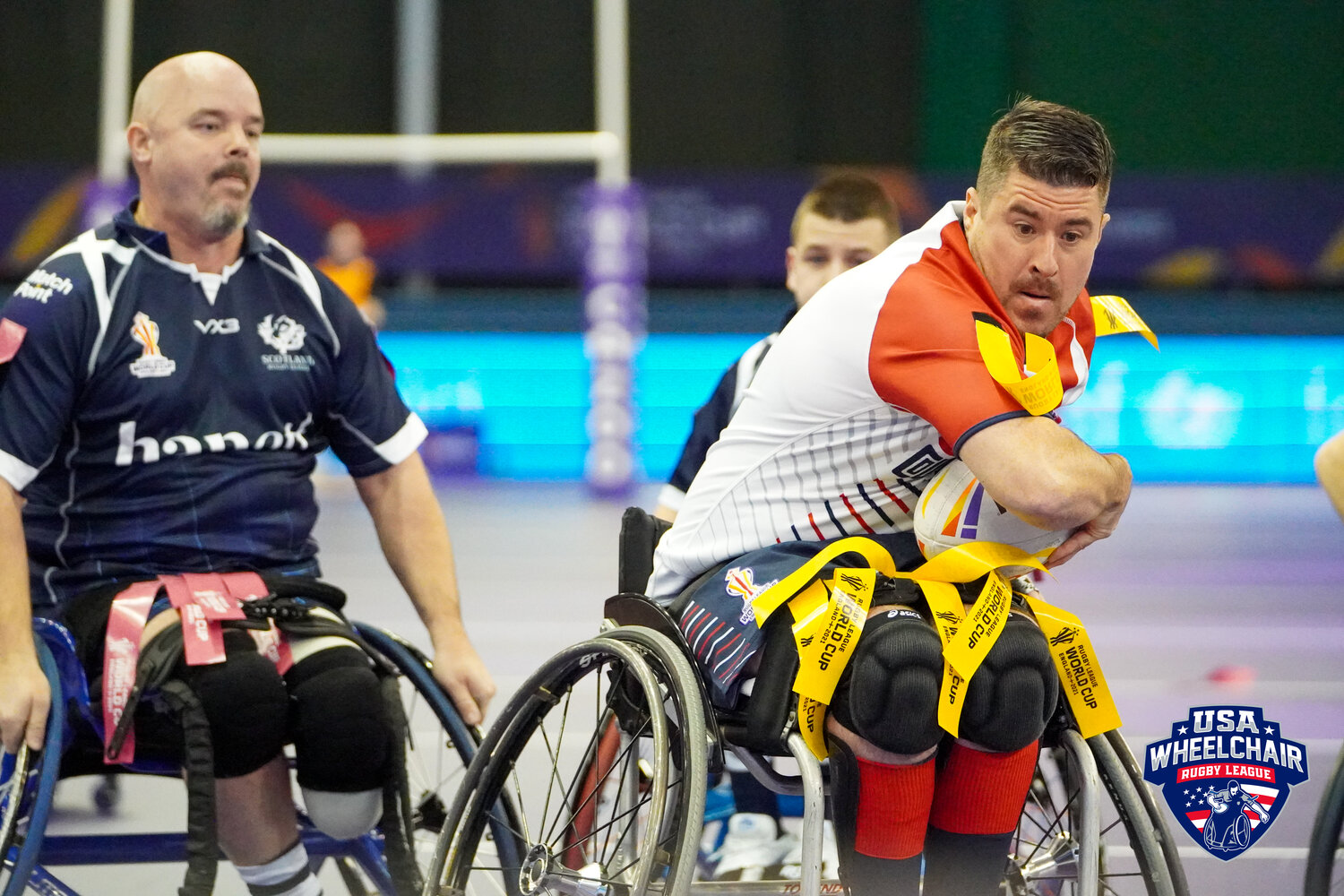
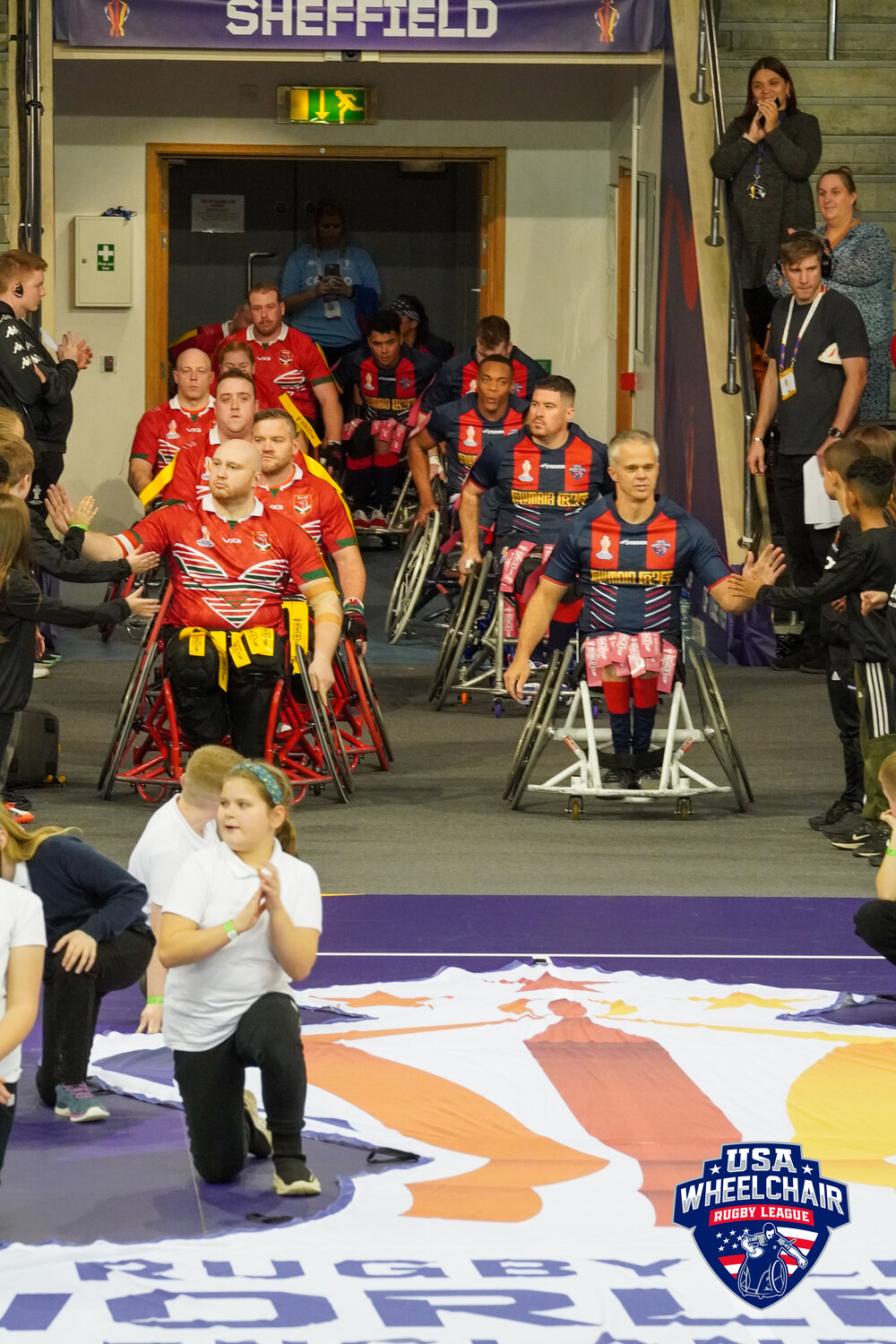
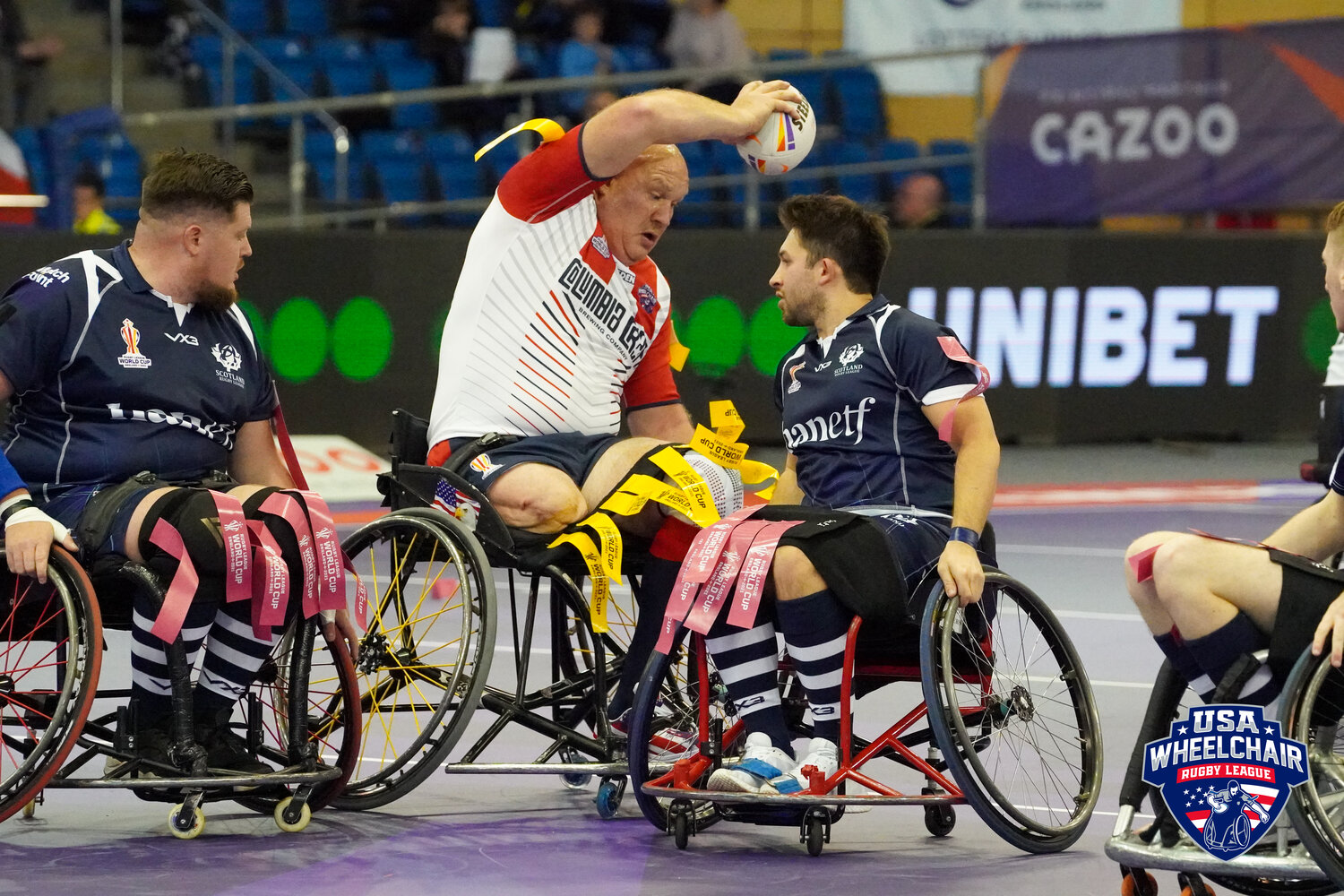
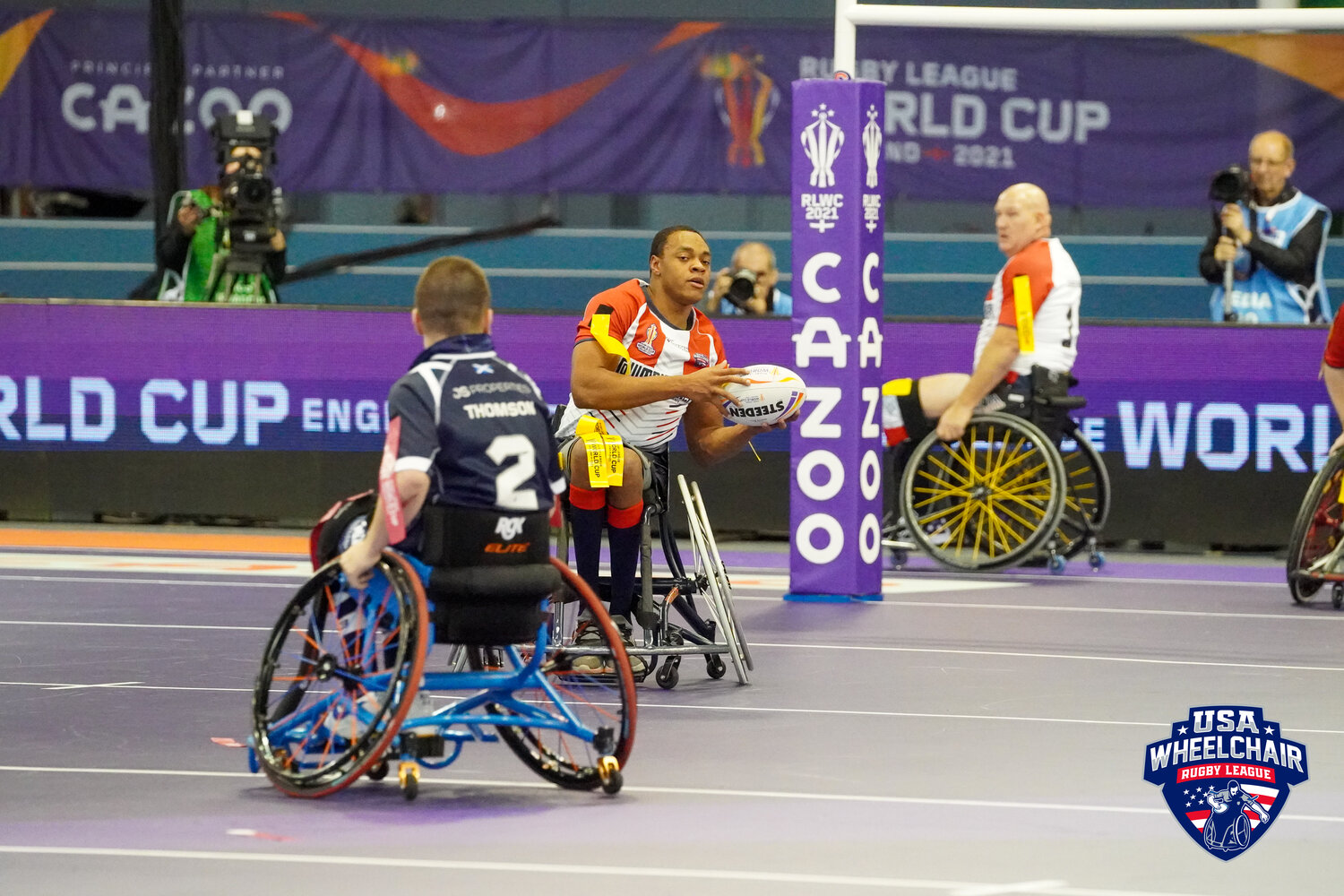
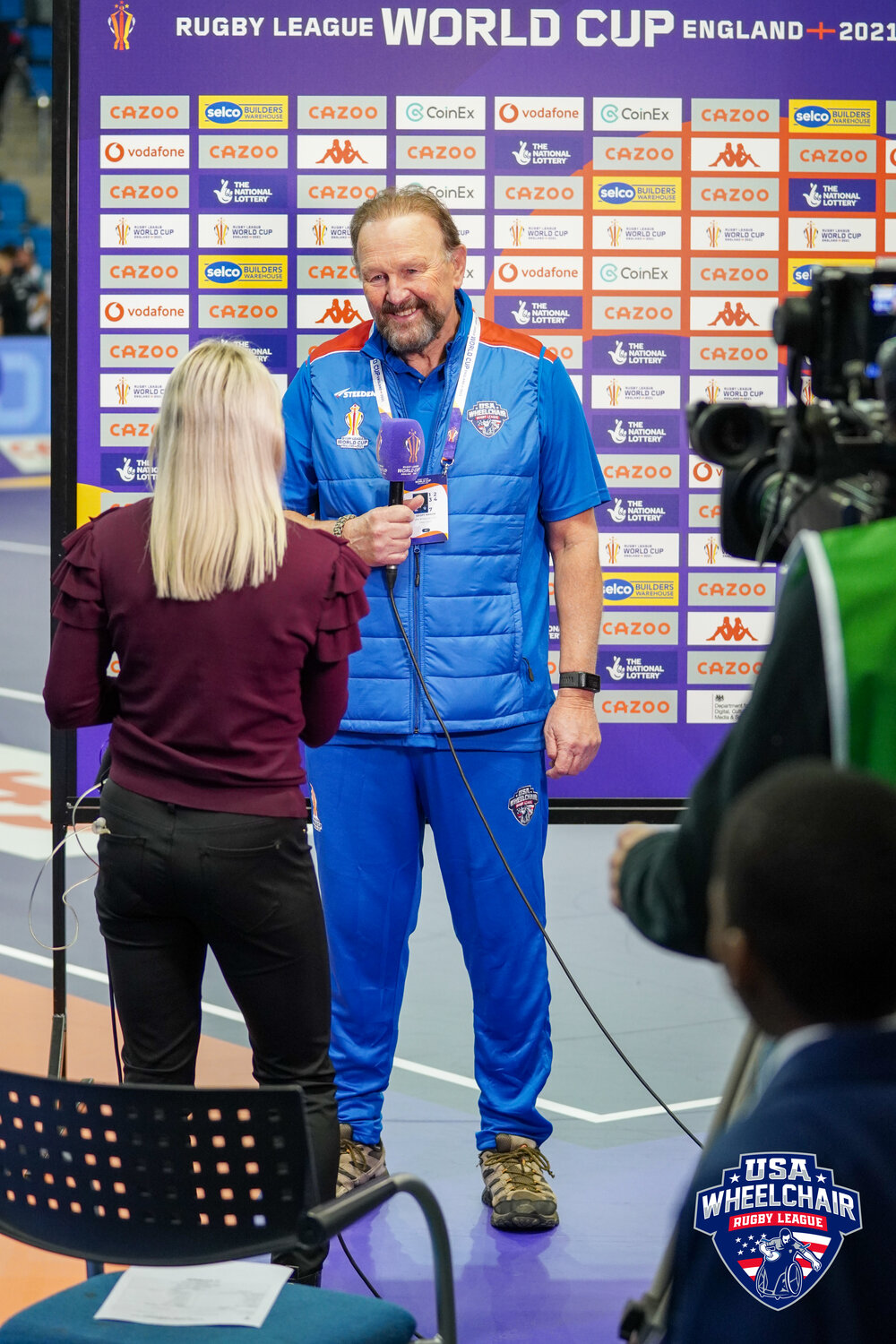













Comments
No comments on this item Please log in to comment by clicking here